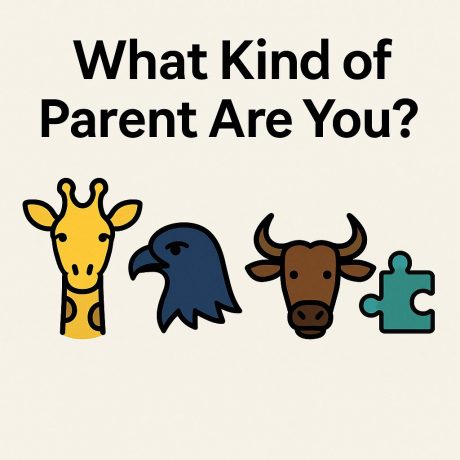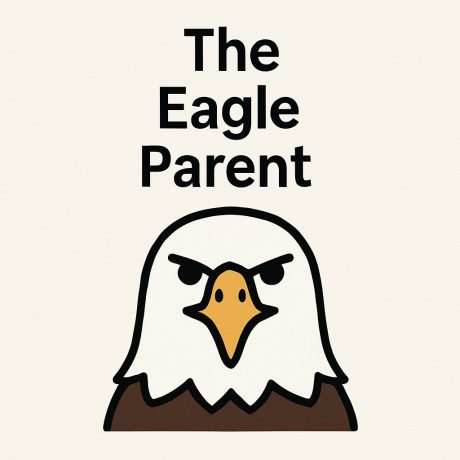Navigating your child’s education isn’t just about choosing the right school: it’s about learning how to work the system.

From baffling admissions procedures and Ofsted spin to the subtle pressures of social status and playground politics, today’s education landscape can feel like a jungle. League tables, glossy brochures, contradictory advice: it’s hard to know who or what to trust.
But here’s the deeper truth: you—your instincts, your values, your strategies—play a crucial role in how your child experiences school.
This quick, insightful quiz draws on themes from Parent Power and my soon-to-be-republished guide Working the System to help you identify your parenting style. Are you a Giraffe, Eagle, Wildebeest, or something else entirely?
Take the quiz and find out what kind of educational navigator you really are—and how you can work the system more wisely, ethically, and effectively for your child.
✅ Instructions
For each question, choose the option (a–f) that best reflects your views. Tally your answers. The letter you pick most often reveals your School Jungle Animal—and your parenting style.
📝 The Questions
1. When choosing a school, your first priority is…
a) Academic standards and good discipline
b) A warm, social environment where my child feels part of the community
c) Social status and future opportunities
d) Specialist provision in sport, drama, music etc.
e) Proximity and ease
f) Whatever gets results with the least hassle
2. When you visit a school, you’re most likely to…
a) Read the Ofsted report and ask probing questions
b) Observe how children interact with each other
c) Look for signs of exclusivity or prestige
d) Ask about specialist clubs or scholarship routes
e) Glance around and trust your gut
f) Ask which schools are easiest to get into and work backwards
3. Your ideal school for your child is one that…
a) Has strong results and feels safe
b) Reflects the local community and prioritises kindness
c) Has a “good name” and guarantees top results
d) Offers top-level coaching or artistic opportunities
e) Is nearby and decent enough
f) Has good facilities and no fuss
4. Your attitude to school league tables is…
a) A useful starting point, but I dig deeper
b) Misleading and overhyped
c) A vital source of data—I study them every year
d) Less important than the school’s specialisms
e) Too confusing to bother with
f) I just pick the highest-ranking one and go with it
5. You talk to other parents mainly to…
a) Confirm what I’ve already researched
b) Understand the real culture of the school
c) Network or keep ahead of trends
d) Find the best tutors or activities
e) Pick up basic information
f) Vent frustrations or get insider tips
6. How do you respond to school setbacks (e.g. not getting first choice)?
a) Review the options, calmly explore alternatives
b) Accept it—these things happen
c) Contact everyone I know to pull strings
d) Look for specialist pathways into another good school
e) Complain, but don’t do much
f) Start phoning around to fix it fast
7. How much do you shape your child’s education at home?
a) A lot—we discuss books, revise together, talk regularly
b) I support them emotionally more than academically
c) I hire tutors and make sure they excel
d) I encourage clubs, coaching, and competitions
e) I leave it mostly to the school
f) I expect the school to handle everything
8. Which best describes your view of private education?
a) Useful if you can afford it, but not essential
b) Too exclusive—I value community schools
c) A worthwhile investment for the right status and access
d) The best option for nurturing specialist talents
e) Overrated
f) Just another option if it gets results
9. You believe your child’s success depends mainly on…
a) Parental involvement and good teaching
b) A supportive peer group and happy environment
c) Access to elite institutions
d) Unlocking and nurturing their passion
e) Luck and personality
f) Finding a shortcut or fast track
10. Secretly, you think the school system is…
a) Complex but navigable with the right information
b) Flawed but fixable
c) Ripe for gaming if you’re smart
d) Misaligned with children’s actual talents
e) A bit of a lottery
f) A game to be won, not understood
🐾 Your Results
Count the number of times you picked each letter:
Mostly A: 🦒 The Giraffe Parent

You rise above the noise. You’re thoughtful, well-informed, and value a calm, evidence-based approach. You want a solid state education with academic rigour, but you’re not drawn to hype or prestige for its own sake.
Your strengths: Calm, strategic, steady.
Your challenge: Trust your gut as much as the data: schools are more than numbers.
Mostly B: 🐃 The Wildebeest Parent

You believe school is about growing up well, not just grades. You prioritise kindness, stability, and friendships. You tend to favour the local option and want your child to feel like they belong.
Your strengths: Empathic, values-led, community-focused.
Your challenge: Don’t overlook poor teaching or standards in the name of keeping the peace.
Mostly C: 🦅 The Eagle Parent

You soar above the rest—strategic, ambitious, and focused on social mobility. Whether it’s grammar schools, private schools, or selective faith schools, you’re doing everything to secure top opportunities.
Your strengths: Smart, proactive, well-networked.
Your challenge: Make sure your child’s emotional wellbeing is a priority too.
Mostly D: 🐆 The Leopard Parent

You see talent everywhere—and school should unlock it. Whether it’s music, sport, drama, or something niche, you want your child to shine.
Your strengths: Passionate, dedicated, inspiring.
Your challenge: Avoid over-scheduling and allow room for flexibility.
Mostly E: 🐜 The Ant-Eater Parent

You’re practical, relaxed, and not interested in games or politics. You’re inclined to trust the school system and hope it works out.
Your strengths: Loyal, easygoing, flexible.
Your challenge: Be a bit more proactive—especially if things go wrong. Schools vary a lot.
🦊 Mostly F: The Fox Parent

You’re resourceful, agile, and sharp. When problems arise, you act fast and decisively—fixing, emailing, calling, intervening. You may not love the school system, but you’re determined to make it work for your child.
Your strengths: Energetic, problem-solving, persistent.
Your challenge: Step back sometimes. Fast fixes don’t always lead to long-term success. The best results often come from collaboration, reflection, and trusting the process—even when it feels slow.
🧠 Final Thought
None of these animals is “right” or “wrong”—they’re all valid approaches. But understanding your style can help you make better decisions, connect with the right schools, and stay resilient through the process.
📘 Adapted from Francis Gilbert’s Parent Power (Piatkus, 2007)
💬 Need expert help? [Book a 1:1 consultation with me]
📥 Want the printable quiz? Download the quiz is here:


Leave a Reply